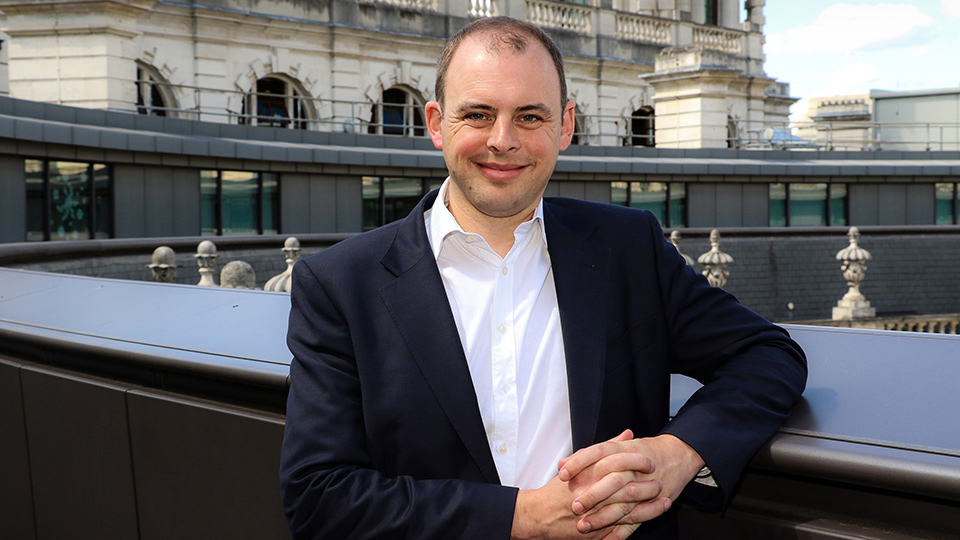Digital minister says Huawei’s 5G removal is a ‘big hassle factor’ for the UK
At the 5G Realised Summit - taking place over the next two days in London - Matt Warman MP has discussed the effect of Huawei’s removal from the UK’s 5G infrastructure.

Speaking at the 5G Realised Summit today, Matt Warman MP, Minister for Digital Infrastructure in the UK government, has claimed that Huawei’s removal from the UK’s 5G infrastructure – whilst providing new opportunity – is also going to cause a ‘big hassle factor’.
“If you’re a big network, there is a big ‘hassle factor’ in moving from one supplier, where you have one big contract, to a place where the government’s saying “Wouldn’t it be great if you had multiple suppliers?"
Matt Warman MP.
“If you’re a big network, there is a big ‘hassle factor’ in moving from one supplier, where you have one big contract, to a place where the government’s saying “Wouldn’t it be great if you had multiple suppliers?,” Warman explained in a Q&A with 5GUK chair, Rosalind Singleton. “On the one hand the answer is “Yes”, but we need to look at how me make sure that the hassle factor is as limited as it can possibly be, and look at how we make sure that government is not artificially encouraging an ecosystem that will just end up converging into a smaller number of players.”
Opportunity to compete
However, whilst acknowledging that the government’s intervention over which companies can supply products in the 5G space has caused problems, Warman also said that it would provide smaller companies with an opportunity to compete.
“With the decision around Huawei, obviously we’ve created a huge space that will need filling,” said Warman. “And we need to work on ensuring that that is both fulfilled in a sensible, sustainable, safe and secure way for the networks and for the country as a whole, but also that we make the most of that really significant business opportunity.
“It’s great that we’re having conversations with Samsung, and NEC, as well as Nokia and Ericsson – all of the traditional, big players – but success requires a much greater range of diversity, so we can show that we’re not reliant in the long term on a handful of suppliers, but we’re reliant on an ecosystem of suppliers that’s sustainable because of its diversity.”
It’s hoped that smaller companies can be supported by the 5G Testbeds and Trials Programme, which is a government-backed initiative, announced in autumn 2017, that shares a £740 million fund to develop technology trials and pilot schemes that develop new 5G use cases and business opportunities.
“What we’re seeing over the duration of the Testbeds and Trails Programme, as it stands, is a far greater number of British companies involved at every level, from software through to hardware,” Warman explained. “That’s really good. But these are often very small companies, and we need to think about how we can try and make sure that we set the right conditions for them to be able to grow into that space. It’s a huge opportunity.”
SIGN UP FOR E-MAIL NEWSLETTERS
Get up to speed with 5G, and discover the latest deals, news, and insight!
Attendance to the 5G Realised Summit, taking place on September 9th-10th, is free for operator CSPs and vertical sector application representatives, and includes workshops and discussion sessions led by industry experts from the likes of Vodafone, Ericsson, Ofcom, and more.
- Get your hands on the hottest 5G phones
- Millimeter wave: the secret sauce behind 5G
- The complete guide to 5G security
- We reveal the latest 5G use cases
- Discover the truth behind 5G dangers
- 5G towers: everything you need to know
Dan is a British journalist with 20 years of experience in the design and tech sectors, producing content for the likes of Microsoft, Adobe, Dell and The Sunday Times. In 2012 he helped launch the world's number one design blog, Creative Bloq. Dan is now editor-in-chief at 5Gradar, where he oversees news, insight and reviews, providing an invaluable resource for anyone looking to stay up-to-date with the key issues facing 5G.

